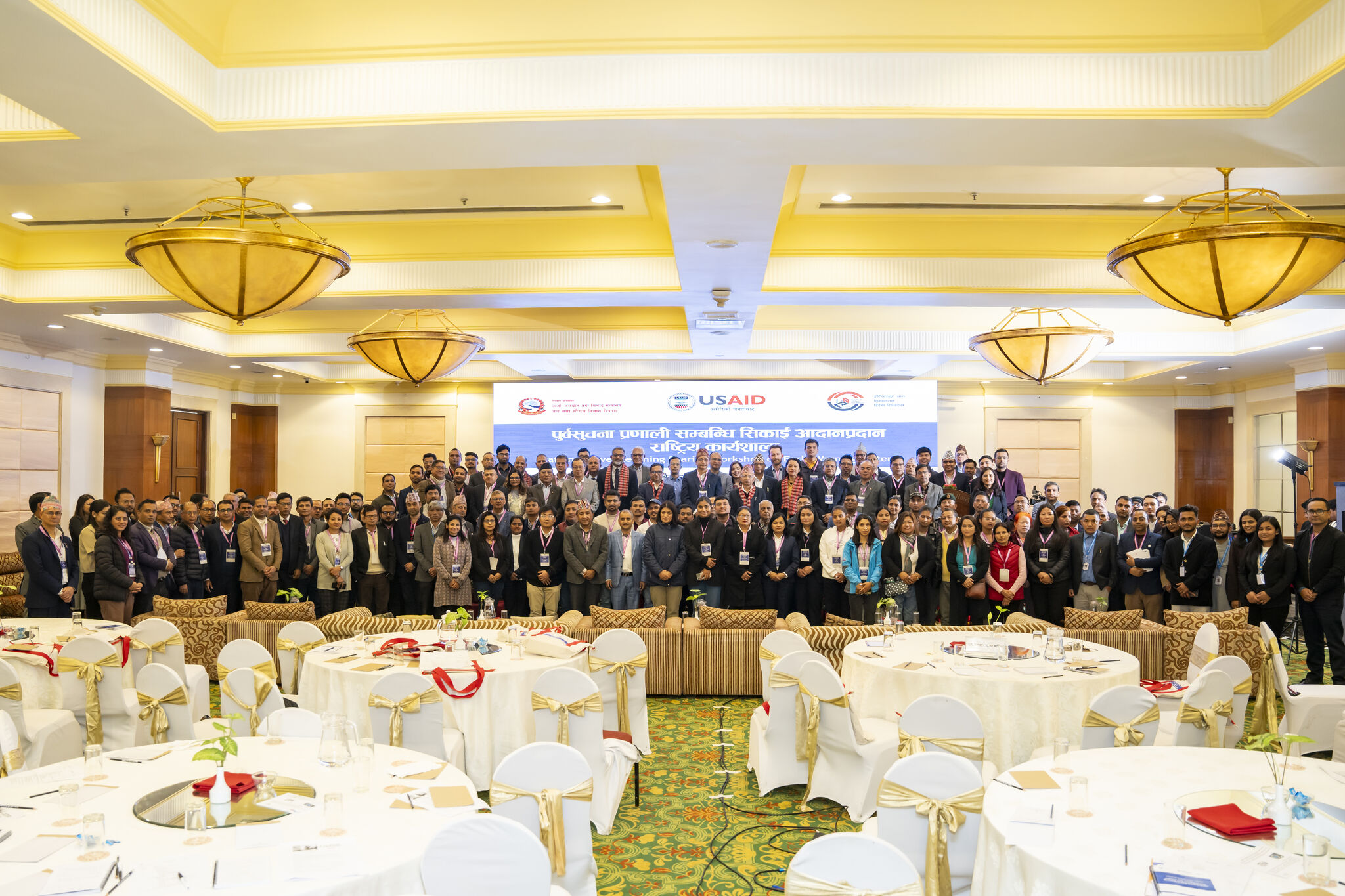
Detailed Description
The National Workshop on Early Warning System for Disaster Preparedness was held on 21st March 2024 in the Everest Hotel, as part of the National Water and Meteorology Week, commemorating World Water Day and World Meteorology Day. The workshop was inaugurated by Hon. Minister of MOEWRI, Mr. Shakti Bahadur Basnet, who emphasized the critical importance of enhancing Nepal's early warning systems (EWS) to better prepare for and respond to disasters. The event was organized by the Department of Hydrology and Meteorology (DHM) and the Institute of Himalayan Risk Reduction, with the aim of fostering collaboration among key stakeholders in disaster risk reduction (DRR).
The workshop drew a diverse group of 221 participants, including government officials, private sector representatives, development partners, and community stakeholders. Participants were engaged through a variety of activities, such as technical presentations, rapid-fire ‘lightning sessions,’ and a Gallery Walk showcasing innovative technologies and research in EWS. The workshop's thematic sessions were structured around the four key pillars of EWS: disaster risk knowledge, detection and monitoring, warning dissemination, and preparedness and response capabilities.
The primary objective of the workshop was to exchange technical, technological, and managerial knowledge, skills, and experiences related to EWS. Participants were encouraged to share insights and best practices, explore frontier technologies, and discuss ways to demonstrate the impact of EWS innovations. The activities facilitated dynamic exchanges, with participants presenting impactful ideas and case studies, furthering the understanding of EWS and its role in disaster preparedness.
The workshop concluded with several key learnings, including the need for stronger community involvement, tailored solutions for local needs, and sustained investment in EWS infrastructure. The importance of inclusive EWS which prioritizes vulnerable groups, as well as effective communication and collaboration among diverse stakeholders, was emphasized. Participants agreed that these efforts are crucial for building resilience, enhancing disaster preparedness, and minimizing the impact of future disasters.
Recorded Video of Workshop: